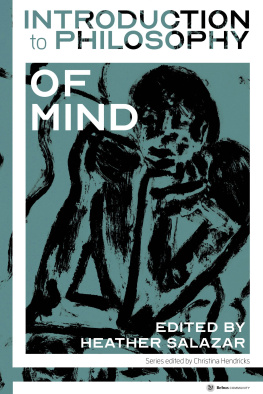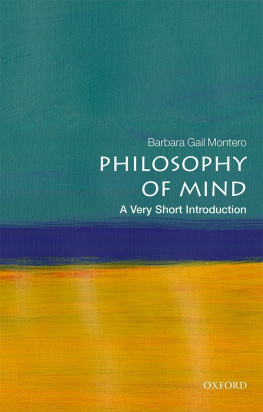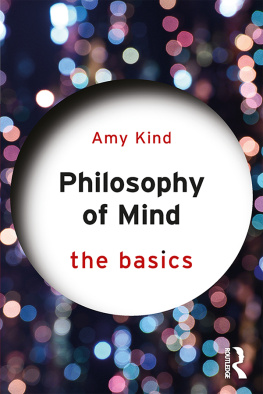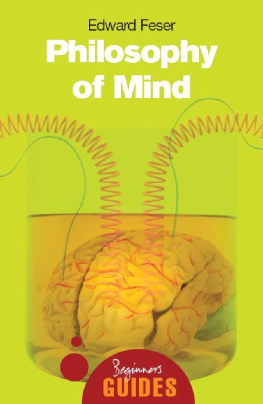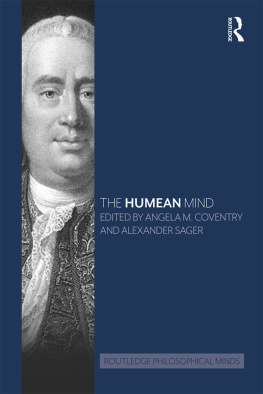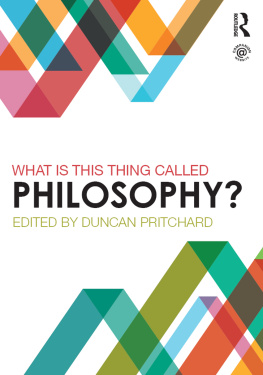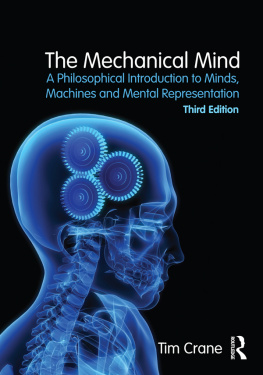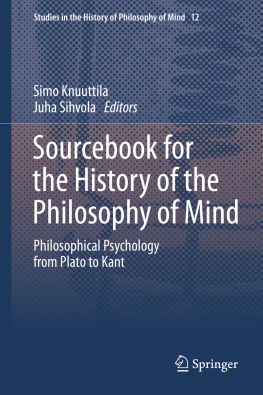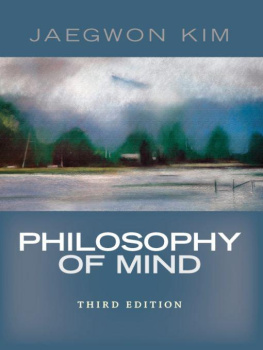Introduction to Philosophy: Philosophy of Mind
Eran Asoulin, Paul Richard Blum, Tony Cheng, Daniel Haas, Jason Newman, Henry Shevlin, Elly Vintiadis, Heather Salazar (Editor), and Christina Hendricks (Series Editor)

Introduction to Philosophy: Philosophy of Mind by Eran Asoulin, Paul Richard Blum, Tony Cheng, Daniel Haas, Jason Newman, Henry Shevlin, Elly Vintiadis, Heather Salazar (Editor), and Christina Hendricks (Series Editor) is licensed under a Creative Commons Attribution 4.0 International License, except where otherwise noted.
Contents
1
What is an open textbook?
What is an open textbook
Christina Hendricks
An open textbook is like a commercial textbook, except: (1) it is publicly available online free of charge (and at low-cost in print), and (2) it has an open license that allows others to reuse it, download and revise it, and redistribute it. This book has a for more information).
In addition to saving students money, an open textbook can be revised to be better contextualized to ones own teaching. In a recent study of undergraduate students in an introductory level physics course, students reported that the thing they most appreciated about the open textbook used in that course was that it was customized to fit the course, followed very closely by the fact that it was free of cost ( that one must clarify in such cases that the book is an adaptation.
A number of commercial publishers offer relatively inexpensive digital textbooks (whether on their own or available through an access code that students must pay to purchase), but these may have certain limitations and other issues:
- Access for students is often limited to a short period of time;
- Students cannot buy used copies from others, nor sell their own copies to others, to save money;
- Depending on the platform, there may be limits to how students can interact with and take notes on the books (and they may not be able to export their notes outside the book, so lose access to those as well when they lose access to the book).
None of these is the case with open textbooks like the Introduction to Philosophy series. Students can download any book in this series and keep it for as long as they wish. They can interact with it in multiple formats: on the web; as editable word processing formats; offline as PDF, EPUB; as a physical print book, and more.
See the next section, for more information on what the open license on this book allows, and how to properly attribute the work when reusing, redistributing, or adapting.
2
How to access and use the books
How to Use
Christina Hendricks
We hope the books (or chapters in the books) will be adopted for introductory-level courses in philosophy, as part of required readings. You may use the books as they are, or create adaptations or ancillaries. One of the important benefits of the Introduction to Philosophy series is that instructors can mix and match chapters from various books to make their own customized set of readings for their courses.
Be sure to read carefully and attribute the chapters or book properly when reusing, redistributing, or adapting.
Each book can be read online, and is also downloadable in multiple formats, from their respective book home pages on the Rebus Press site (e.g., Introduction to the Philosophy of Mind).
- The .odt format can be opened by Open Office, Libre Office, or Microsoft Word. Note that there may be some issues with formatting on this format, and hyperlinks may not appear if opened with MS Word.
- The PDF files can be edited with Adobe Acrobat (the full program, not just the Reader) or printed out. The print version of the PDF does not have hyperlinks.
- The EPUB and MOBI files can be loaded onto digital reading platforms like Adobe Digital Editions, Apple Books, and Kindle. They can also be edited using Pressbooks or tools like Calibre.
- Edits can be made using the XHTML format or via the Pressbooks XML format (for easier adaptation in Pressbooks).
- The book is also available for download as a Common Cartridge 1.1 file (with web links) for import into your learning management system (see instructions for importing Common Cartridge files, from the Pressbooks User Guide).
The multiple editable formats allow instructors to adapt the books as needed to fit their contexts. Another way to create adaptations is to involve students in contributing to open textbooks. Students may add new sections to an adapted book, link to other resources, create discussion questions or quiz questions, and more. Please see Rebus Communitys A Guide to Making Open Textbooks with Students for more information and ideas.
If you plan to use or adapt one or more books (or chapters), wed love to hear about it! Please let us know on the Rebus Community platform, and also on our adoption form.
And if you have feedback or suggestions about the book, we would really appreciate those as well. We have a separate form for keeping track of issues with digital accessibility, so please let us know if you find any.
3
Introduction to the Series
Series Introduction
Christina Hendricks
This book is part of the Introduction to Philosophy open textbook series, a set of nine (and counting?) open access textbooks that are designed to be used for introductory-level, survey courses in philosophy at the post-secondary level.
Overview of the Series
This set of books is meant to provide an introduction to some of the major topic areas often covered in introductory-level philosophy courses. I have found in teaching students new to philosophy that many struggle with the new ideas, questions, and approaches they find in introductory courses in philosophy, and that it can be helpful to provide them with texts that explain these in relatively straightforward terms.
When I began this project there were few textbooks that I was happy enough with to ask students to purchase, and even fewer openly licensed textbooks that I could pick and choose chapters from, or revise, to suit my courses. This series was created out of a desire to provide such resources that can be customized to fit different contexts and updated by instructors when needed (rather than waiting for an updated version from a publisher).
Each book is designed to be accessible to students who have little to no background in philosophy, by either eliminating jargon or providing a glossary for specialized philosophical terms. Many chapters in the books provide examples that apply philosophical questions or concepts to concrete objects or experiences that, we hope, many students are familiar with. Questions for reflection and discussion accompany chapters in most of the books, to support students in understanding what to focus on as they are reading.
The chapters in the books provide a broad overview of some of the main discussions and debates in the philosophical literature within a topic area, from the perspective of the chapter authors. Some of the chapters focus on historical approaches and debates, such as ancient theories of aesthetics, substance dualism in Descartes, or classical utilitarian versus Kantian approaches in ethics. Others introduce students to questions and topics in the philosophical literature from just the last few decades.

